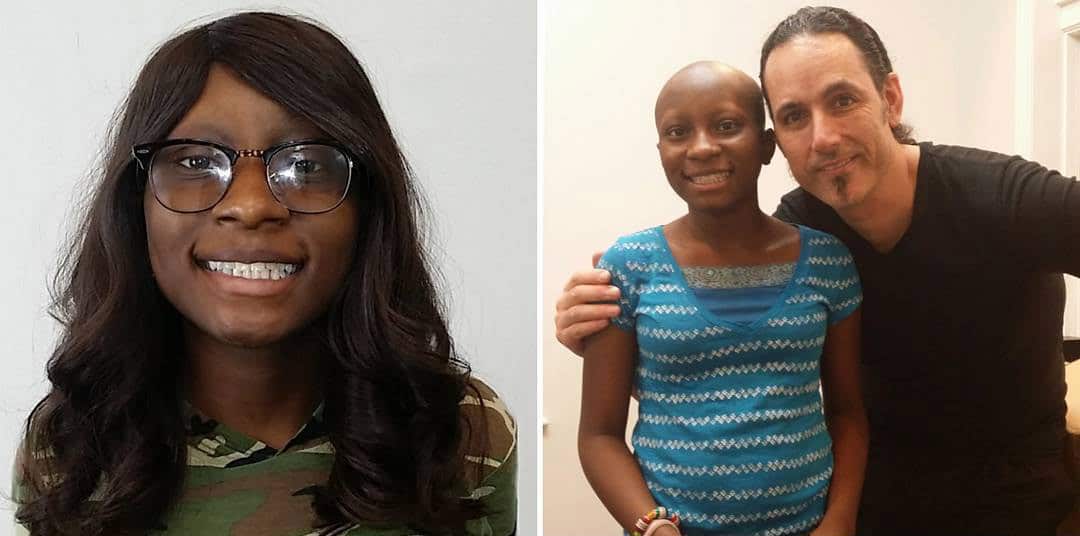Alopecia Areata Awareness Month
If you are looking for a hair loss solution, it is really normal to feel possibly ashamed or scared or uncertain.
Devin and I and our team have dealt with these kinds of situations for over 25 years. You have no need to feel this way with us.
We want you to feel safe and secure, and we want you to know that we will do everything we can for you, and we have your back.
So, when you come to Sanctüary, it doesn’t matter who you are, what your age is, what your background is – you matter so much to us and we’re going to take great care of you.
It could be a child who has Alopecia who needs a wig; it could be a 90-year-old woman who is not ready to be old and she wants to be as young as she feels inside and is getting mermaid hair extensions.
Whatever each client needs, we will give an individual solution that will make them feel great.
What is Alopecia?
If you are living with Alopecia, you are not alone. As many as 6.8 million people in the U.S. — 147 million people worldwide — are affected by alopecia areata. It is a common autoimmune disorder that often results in unpredictable hair loss. The condition can affect anyone, regardless of age and gender. Most cases occur before the age of 30, when you might start noticing that your hair is thinning.

6.8 million people
United States
147 million people
Worldwide
According to the American Academy of Dermatology
Some people have a greater risk of developing Covid. Those most likely to get Covid 19 have:
Research shows
That people who have one of these diseases are more likely to get Alopecia AreataAsthma, hay fever, atopic dermatitis, thyroid disease, vitiligo, or Down syndrome
A close blood relative with alopecia areata
It’s estimated that about 10% to 20% of people with alopecia areata have a family member who has it. Because many people try to hide hair loss, this percentage may be higher.
Been treating cancer with a drug called nivolumab
While it’s too early to say whether this greatly increases your risk, a few cancer patients who received a drug called nivolumab (nye-VOL-you-mab) have developed alopecia areata.
In most cases, hair falls out in small patches (about the size of a quarter), though it can be more extreme. Sometimes, it can lead to the complete loss of hair on the scalp (alopecia totalis) or, in extreme cases, the entire body (alopecia universalis). Currently, there is no cure for alopecia areata. But the good news is that even when your disease is “active,” your hair follicles remain alive. This means that your hair can grow back again — even after a long period of time and even if you have more than 50% hair loss.
At Sanctüary, we offer multiple solutions to help you with your hair loss. Since the scalp is the most commonly affected area, we can educate you on your options, from trichology to hair restoration solutions like CNC from Cesare Ragazzi.
You can also find more information and support on the National Alopecia Areata Foundation website (https://www.naaf.org/).